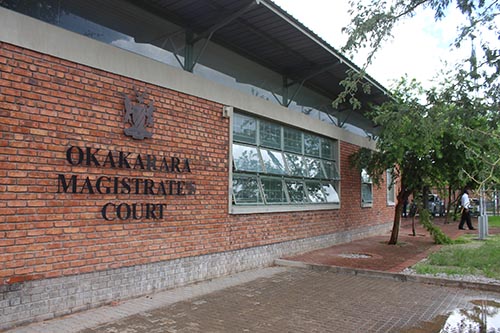Roland Routh
Several judges have criticised the work of magistrates in review judgments in recent months.
In several instances, sentences were reduced for being too harsh and “shockingly inappropriate” or set aside or sent back to the magistrate for re-sentencing especially in instances where accused persons are first-time offenders. High Court judges review judgments by magistrates at the various lower courts where an accused person was not represented by a lawyer.
The judges found that magistrates often equate stiff sentences with the purpose to deter an accused or any person from committing the same or similar offences, but often forget that any sentence must be blended with a measure of mercy, especially in cases where an accused is a first offender and pleaded guilty to the charge.
They also found that magistrates often overemphasise the seriousness and the prevalence of the crime at the expense of the accused person’s personal circumstances and mitigating factors and overlook the element of mercy which is an integral element of justice in itself and punish accused persons to the point of breaking them.
In a case where an accused was sentenced to an effective jail term of four years on a charge of stock theft while he was a first-time offender and pleaded guilty to the charge, the review judges found that the sentence imposed was too harsh and induced a sense of shock.
“No reasonable member of society would celebrate the sentence meted out on the accused as appropriate,” the judges stated. Another case in point is when magistrates fail in their duty to apply the law correctly when dealing with unrepresented accused persons.
The judges said that instances where magistrates ask accused persons leading questions which leaves no room for the accused to answer must be avoided at all costs. Such questions, they said, almost contain all elements of an offence and it is unclear as to which elements an accused admits.
Furthermore, they said, such questions consist of legal terms than an unsophisticated accused in many instances would not comprehend. “The basic principles to be followed by magistrates, when questioning an accused in terms of the Criminal Procedure Act (CPA) are that leading questions should be avoided as far as possible and that each element of an offence should preferably be covered with a separate question to the accused,” the judges recommend.
“The purpose of this approach is to protect an unrepresented and illiterate accused against an ill-considered plea of guilty. ”According to the judges, an accused should be given an opportunity to tell the court in his or her own words and at his or her own accord what happened or why he or she is pleading guilty.
According to them, it amounts to an irregularity in proceedings if during questioning, the magistrate merely repeat the allegations contained in the charge in the form of leading questions.
“The charge itself must not be rephrased by the magistrate and then put to the accused,” they stated. Furthermore, the judges said, the elements of the offence must be put pertinently to an accused in order for the magistrate to ascertain himself of the guilt of an accused and not rely on the opinion of the accused of his guilt.
They further said that proper questioning is a skill that is often developed with experience and even though it is not always possible for a magistrate to avoid leading questions, it is important to allow an accused to explain in his own words the reasons for his guilty plea.
– rrouth@nepc.com.na


